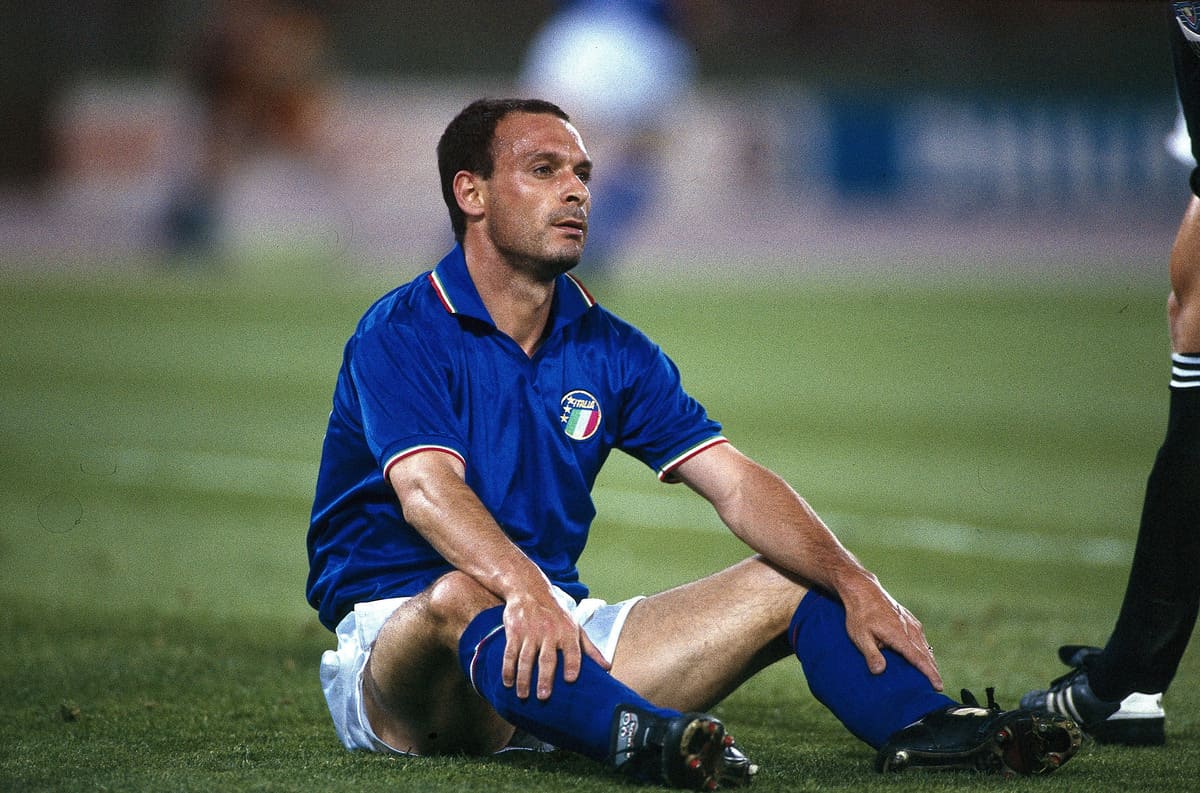Can the hosts claim glory?
Three time European Champions Germany will kick-off Euro 2024 on home soil on Friday when they take on Scotland in the Group A curtain-raiser.
Since lifting their fourth World Cup in Brazil in 2014, Die Mannschaft have endured 10 years of hurt, something which has amused much of the globe nearly as much as it has irked Germany fans.
Can they roll back the years and return to their former glories and add the 2024 title to the 1972, 1980 and 1996 crowns?
Let’s have a look at how the hosts are shaping up…
Group A
This is perhaps the easiest group to predict according to most bookies and fans. Germany, three-time winners, three-time runners-up, who have qualified for the finals more than any other side, will face neighbours Switzerland, Hungary and Scotland.
Germany will take on Scotland in the first game of the tournament in Munich on June 14 but it’s likely to be their clash with Hungary in Stuttgart five days later, and potentially the final-day clash with Switzerland in Frankfurt on June 23 which will determine the order in which they finish in Group A.
Germany are heavy odds on to finish top and the shortest price with the bookies to win all their group games, however they lag well behind England and France in the betting to lift the trophy.
How come they are not favourites? It’s at home, right?
Well, the short answer is because they are ranked 16th in the FIFA world rankings with eight European sides ahead of them.
The past 10 years have not been kind to Germany. Since they thrashed the hosts on their way to lifting the World Cup in Rio in 2014 they have suffered an historically bad run, going out in the group stage in both the 2018 World Cup in Russia and Qatar 2022 and losing in pretty dismal fashion in the Round of 16 against England at Wembley at Euro 2020.
The page was turned as Joachim Low departed in 2021 but his replacement Hansi Flick became the first Germany manager to be sacked, ever, when he was axed in September 2023 after three straight defeats, the final straw a 4-1 reverse against Japan, who had also beaten them in Qatar the previous year.
Dark days indeed for German football. Stop chuckling at the back. Flick’s average of 1.72 points per game was the second worst in the history of the Germany national team. Former Bayern boss Julian Nagelsmann took over last September and although his tenure did begin with some iffy results, losing 3-2 to Turkey in Berlin and 2-0 in Austria three days later in particular, friendly wins in March against the might of France and the Netherlands has given hope they have turned the corner.
🇩🇪 Julian Nagelsmann has confirmed that Arsenal’s Kai Havertz will lead the line for Germany at EURO 2024.
🔁 Nagelsmann believes if called upon from the bench, Niclas Füllkrug would have a bigger impact than Havertz would. (Sky Germany) https://t.co/jNLN5v5rHk
— Get German Football News (@GGFN_) June 7, 2024
The 36-year-old has blended some young stars in with some old heads and sprinkled in some in-form lesser names in an attempt to find the recipe for success on home soil. His greatest master stroke of all might be tempting Toni Kroos out of international retirement for one last dance on home soil this summer.
It didn’t help them break the deadlock in a warm-up game stalemate against Ukraine last week, however, and they limped to victory against Greece on Friday, coming from behind and nicking a late winner.
The fact remains that Germany have not won a knockout game at a major tournament since Euro 2016. That’s eight years and four tournaments ago, just to be clear. They might also have been hindered by automatically qualifying as hosts – their lack of competitive football in the past few years can’t have helped them during such a period of turmoil.
While they possess some wonderful attacking players, the Germans have not kept a clean sheet in a tournament since they faced Slovakia in the Round of 16 that same summer of 2016 – they have conceded in 12 straight matches at World Cups and Euros since then. Unprecedented.
Unsere 26 für unsere Heim-EM! 🇩🇪 😍
Wir sind hyped. 🔥🔥#dfbteam #euro2024 pic.twitter.com/O5W0UOPlOk— DFB-Team (@DFB_Team) June 8, 2024
Even so, it’s at home…
Yes, but that might not be as important as you think, the omens are certainly not great. No country hosting the Euros on their own has lifted the trophy since France in 1984. Three years before Nagelsmann was born and when there were only eight teams present.
In the 16 editions of the Euros only two other sides have lifted the trophy on home soil, Spain in 1964 and Italy four years later – only four teams took part in each of those tournaments.
Only co-hosts Poland and Ukraine, in 2012, and Austria and Switzerland four years earlier have failed to reach the last four, at least, since the tournament’s inception.
However, it’s worth remembering Germany do enjoy playing at home. They lifted the 1974 World Cup on home soil, made the semi-finals of Euro 1988 and then finished third in the 2006 World Cup under Jurgen Klinsmann when they had widely been written off before the tournament, with serious comparisons able to be drawn to this year too.
There will certainly be a powerful wave of emotion fuelling this Germany campaign. Kroos returned to international football having retired three years ago and will be playing the final matches of his glittering career. He bowed out of club football with his sixth Champions League medal but can he add a European Championship to his World Cup medal to complete the set?
He returned for the March friendlies where Germany overcame World Cup runners-up France and quarter-finalists the Netherlands in the space of four days, which bodes well.
He’s arguably still the best player in the German squad which is an eclectic mix of household names – who have possibly seen better days – and some relative unknowns.
Manuel Neuer, Thomas Muller, Ilkay Gundogan and Antonio Rudiger possess a wealth of experience but it might be the new breed of Jamal Musiala, Florian Wirtz and Kai Havertz who hold the hopes of a nation in their hands.
Auf geht’s! 🖤❤️💛
0:0 #GERGRE #dfbteam | 📸 Philipp Reinhard/DFB pic.twitter.com/rnRqxmnZ3U
— DFB-Team (@DFB_Team) June 7, 2024
Their path to the final…
Although they are heavy odds on to finish top of Group A, it would not be a complete shock if Germany faced some stiff competition from Hungary.
Germany came from behind late-on to draw against Marco Rossi’s side in Munich at Euro 2020 and did the same in Budapest in the Nations League in June 2022.
Hungary actually won the return match in Leipzig 1-0 later that year and also beat England home and away in the Nations League.
They qualified top of their group for the first time, finishing unbeaten and four points ahead of Serbia, and only saw a 14-match unbeaten streak ended by a freak breakaway goal in a friendly against the Republic of Ireland in Dublin last week.
After 36 years without a finals appearance Hungary have qualified for the third straight tournament for the first time and are worthy of respect. That second group game in Stuttgart on June 19 (5pm BST) looks huge.
Should Germany manage to finish above the Magyars then they will take on the runners-up in Group C, England’s group – so you’d think that might be Denmark.
In that half of the draw Spain or Italy would likely await the winner in the quarter-final while Portugal could be the semi-final opposition.
England or France would ultimately be lurking as potential opposition in the final in Berlin on July 14.
If that’s not tough enough then it looks even worse were Germany to qualify as runners-up, or even as one of the four best third-place finishers.
If they finish second then Spain or Italy would likely form the opposition in the Round of 16 with England looming as potential quarter-final opponents and France in the semi-final. Portugal, Spain or Italy in the Final would almost feel a relief at that stage.
GÄNSEHAUT pur gestern in Herzogenaurach!!! 🖤❤️💛 Danke für den tollen Empfang!#dfbteam #euro2024
📸 DFB/Philipp Reinhard pic.twitter.com/E87m088Xni— DFB-Team (@DFB_Team) June 1, 2024
Conclusion
Can Germany win it? Of course they can. They might be a force in transition but they still possess two of the world’s most exciting talents in Jamal Musiala and Florian Wirtz, they also have the quality, experience and drive of Toni Kroos and the guile of Ilkay Gundogan ahead of him.
Will they win it? Probably not. To do so Germany would likely need to beat three of England, France, Italy and Spain. While their first XI looks a match for most on their day, they lack the squad depth of their rivals and do not possess as many potential match-winners either.
The boss himself is keen to avoid the weight of expectation, urging his squad to try to have fun and ignore the pressure.
Nagelsmann told uefa.com: “It is a huge task, it will be challenging, and it’s certainly not a chance that comes around very often.
“It’s only the second time Germany has hosted a European Championship. For the players, and for myself as a manager, to take part in a tournament on home soil is a unique opportunity.
“There is pressure involved, but more so joy. If we can see that joy on the pitch, then we will have a great tournament.”
Expect to see them have some fun at the expense of Scotland and Switzerland but Hungary might be a different matter. If they finish second in the group then it’s hard to see how they get past Spain or Italy in the Round of 16, even if the home crowd help them, a quarter-final exit at the hands of England would be one which is spoken about for years.
Check out our Latest News and Follow us at Facebook
Original Source







